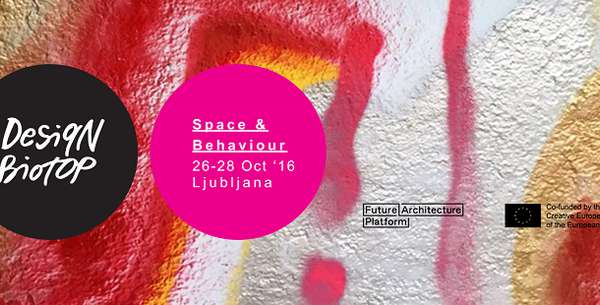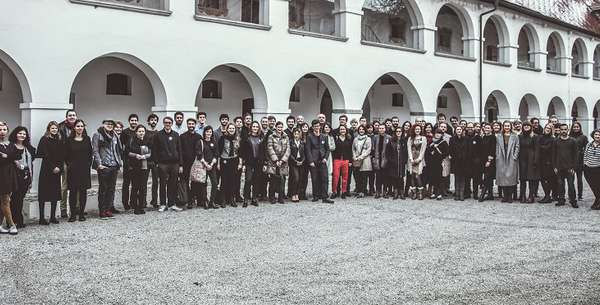Idea by
Tomaz Pipan
Urban as I
Call for ideas 2016
New Models of City Life
New Models of City Life
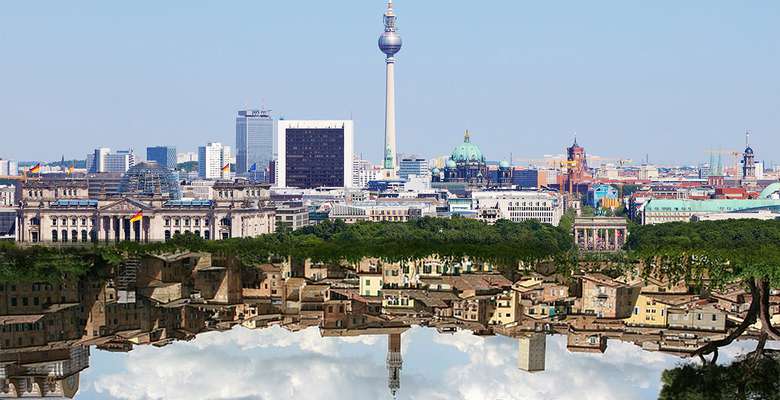
This lecture + workshop series looks at alternative ways to frame the value of the city. The neo-liberal models stem from the belief that knowledge capitalized as services and products is the only way to provide for the city. Consequently, tourism and “constructed culture” become driving forces of redevelopments that hinge on perpetual economic spiral.
We wish to create alternative modes where value of a city is constructed on basis of production and genuine making representing kernels of new civic culture. This represents an alternative value system to that of a neo-liberal one.
The lecture is an introduction into the question of value and production. The workshop as a curated design thinking called “Scenario Game” works on a concrete and specific problem in a given city and shapes an alternative socio/economic organization that could substitute traditional neo-liberal projects and proposes a new architectural design or production organization that makes this possible.
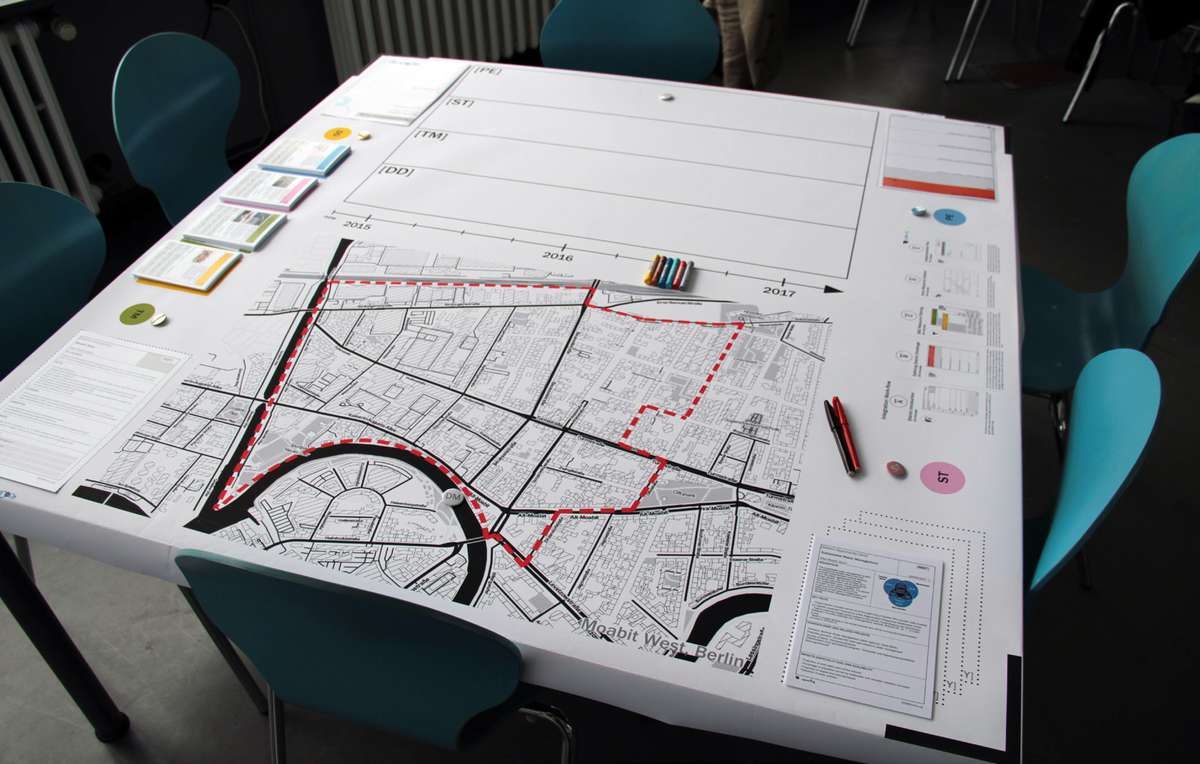
Scenario Game board. A possible board for a scenario game to work on a specific problem. Cards, drawing and curation are the main aspects of the game. (Image taken from SSD project by C H O R A, TU Berlin)
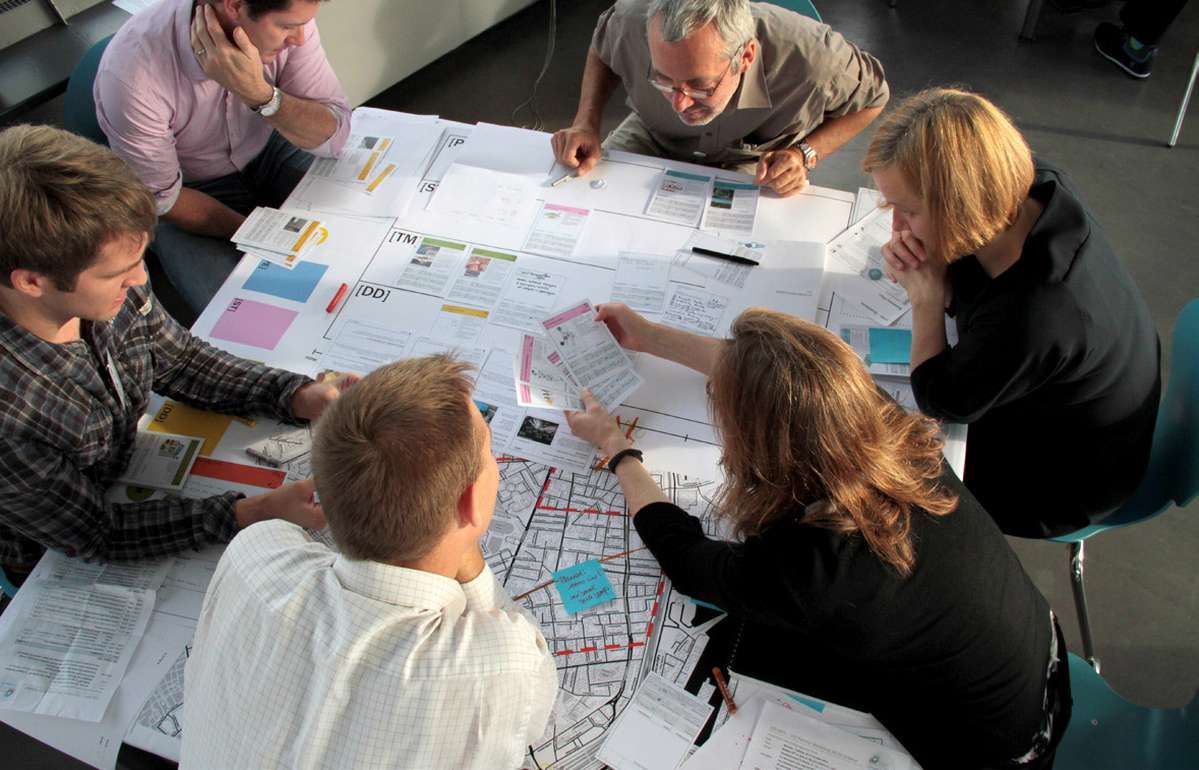
Playing a Scenario Game is a design-thinking process for open ended questions. Throughout the game questions and solutions get progressively more defined (Image taken from SSD project by C H O R A, TU Berlin)
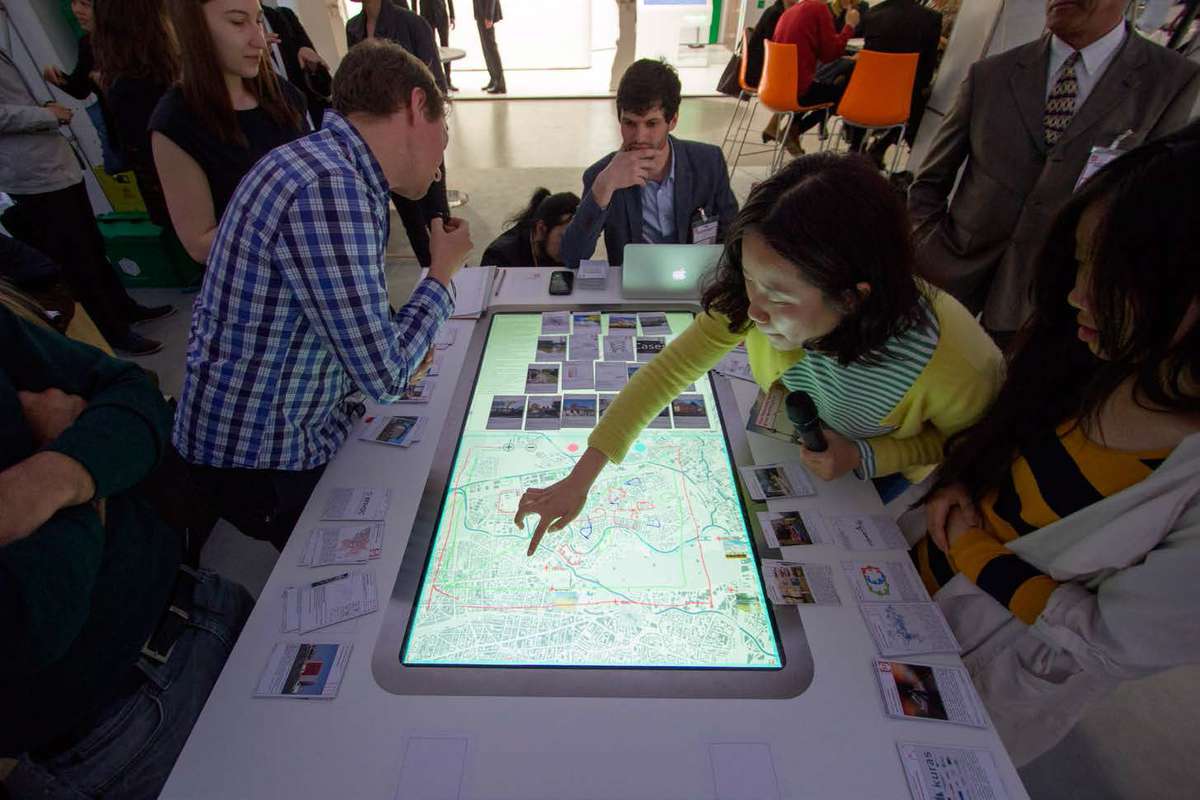
A digital version of Scenario Game is a more engaged version with additional functions (Image taken from MCS project by C H O R A, TU Berlin)
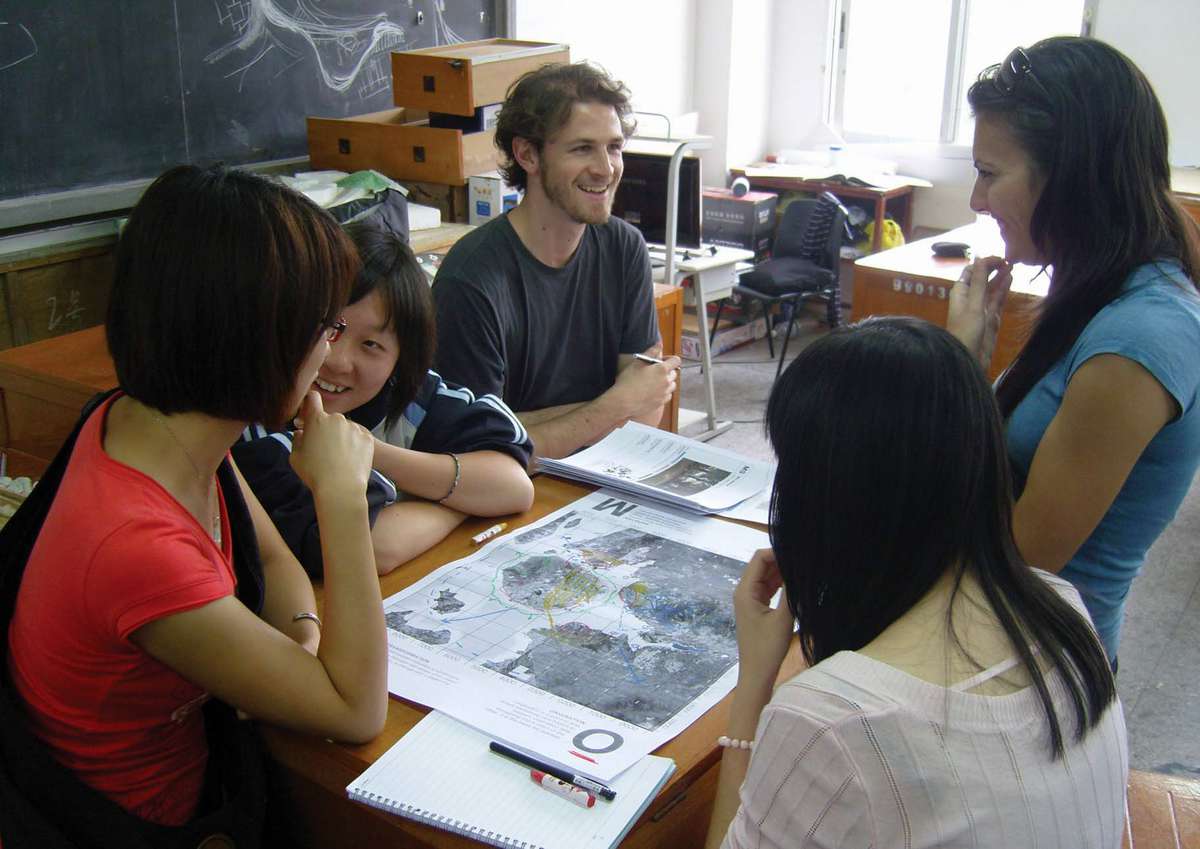
A student version of a Scenario Game, playing in order to shape and test possible projects (London Metropolitan University 2010)
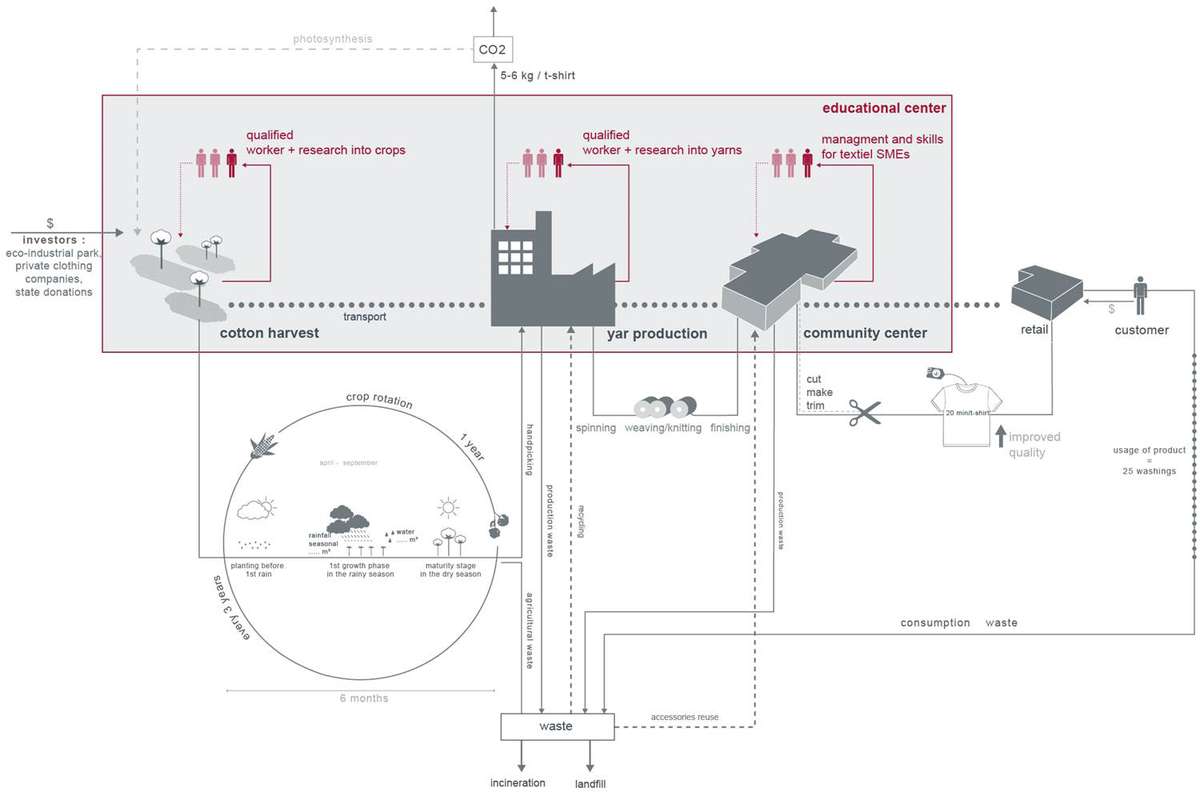
An example of a possible outcome. An idea of a new urban topography based on industrial production and integration of local population. Creating culture on the basis of making and education + programs needed. © Anna Regner, Iwetta Makarewicz, Mariana Ferreira, TU Berlin 2011
New Models of City Life
New Models of City Life

This lecture + workshop series looks at alternative ways to frame the value of the city. The neo-liberal models stem from the belief that knowledge capitalized as services and products is the only way to provide for the city. Consequently, tourism and “constructed culture” become driving forces of redevelopments that hinge on perpetual economic spiral.
We wish to create alternative modes where value of a city is constructed on basis of production and genuine making representing kernels of new civic culture. This represents an alternative value system to that of a neo-liberal one.
The lecture is an introduction into the question of value and production. The workshop as a curated design thinking called “Scenario Game” works on a concrete and specific problem in a given city and shapes an alternative socio/economic organization that could substitute traditional neo-liberal projects and proposes a new architectural design or production organization that makes this possible.
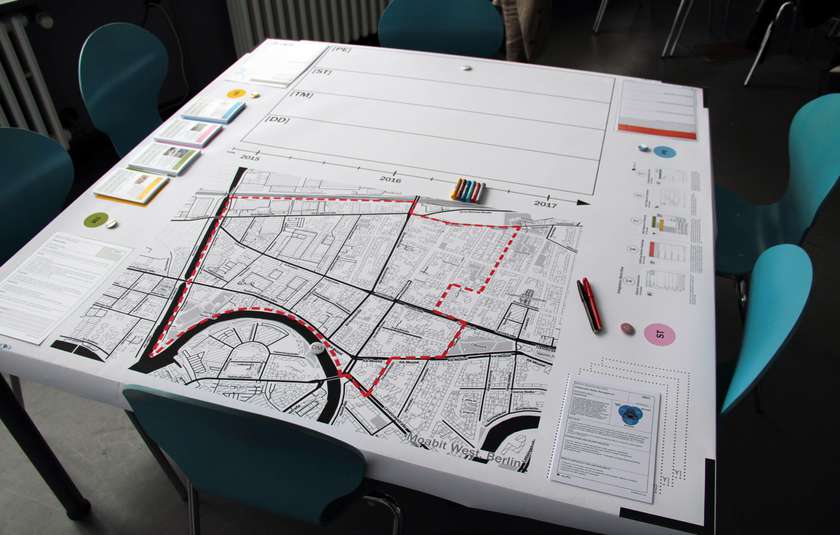
Scenario Game board. A possible board for a scenario game to work on a specific problem. Cards, drawing and curation are the main aspects of the game. (Image taken from SSD project by C H O R A, TU Berlin)
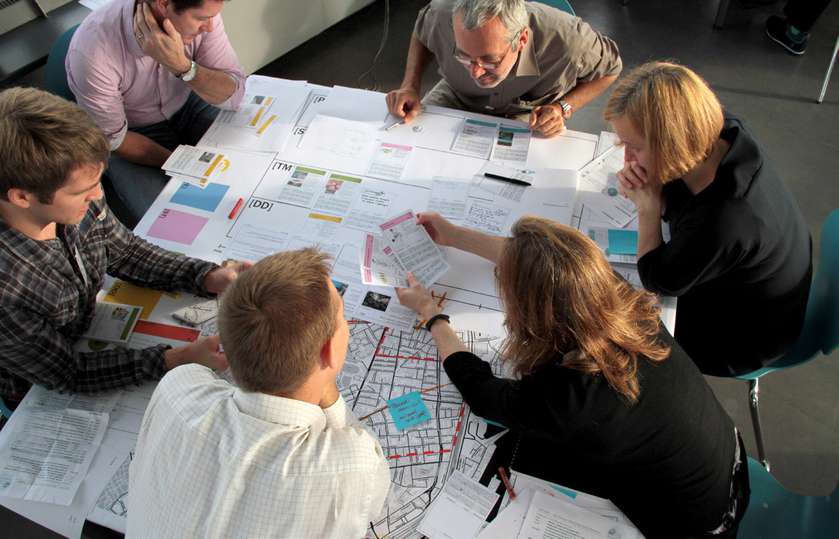
Playing a Scenario Game is a design-thinking process for open ended questions. Throughout the game questions and solutions get progressively more defined (Image taken from SSD project by C H O R A, TU Berlin)
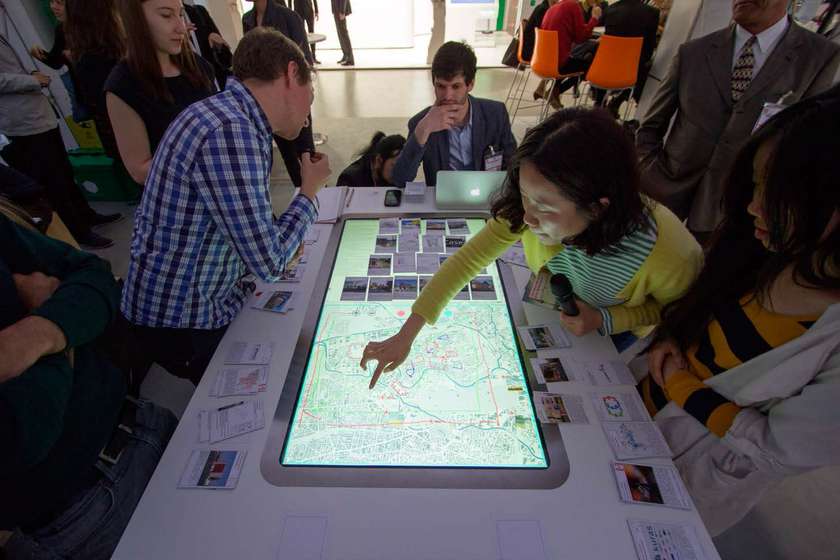
A digital version of Scenario Game is a more engaged version with additional functions (Image taken from MCS project by C H O R A, TU Berlin)
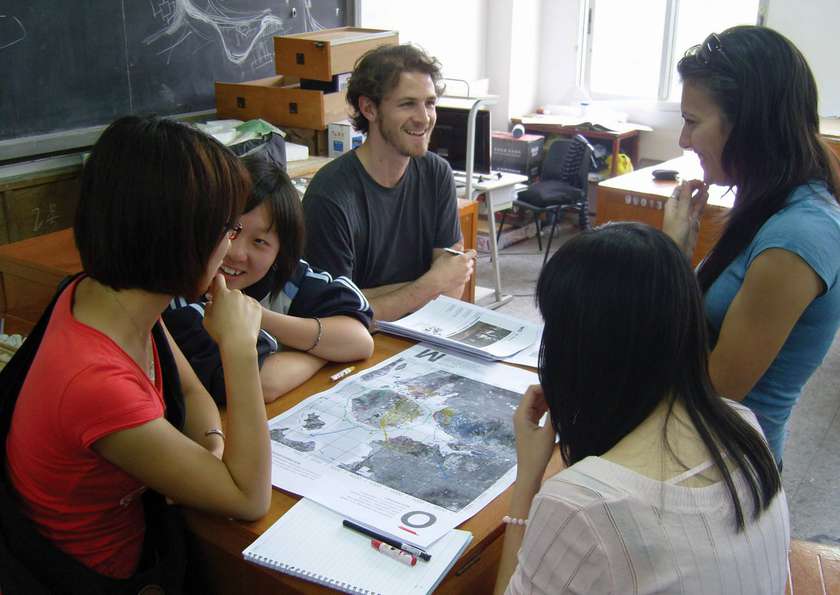
A student version of a Scenario Game, playing in order to shape and test possible projects (London Metropolitan University 2010)
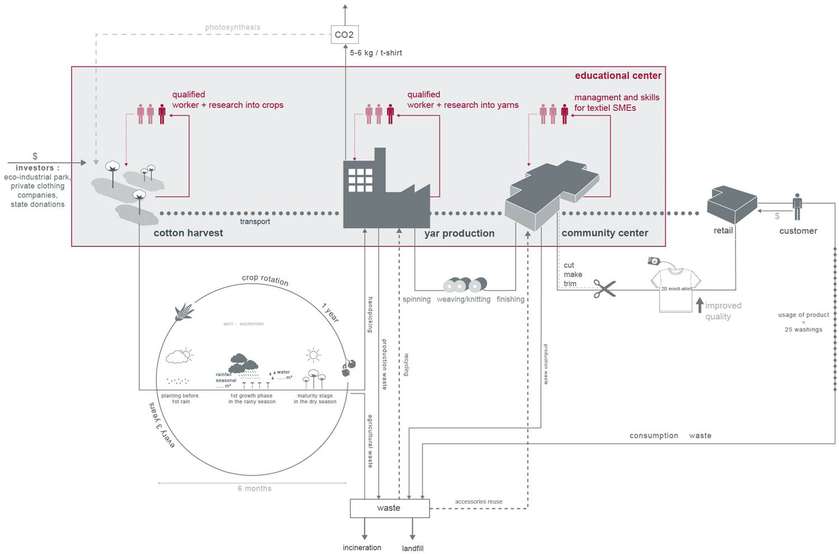
An example of a possible outcome. An idea of a new urban topography based on industrial production and integration of local population. Creating culture on the basis of making and education + programs needed. © Anna Regner, Iwetta Makarewicz, Mariana Ferreira, TU Berlin 2011
